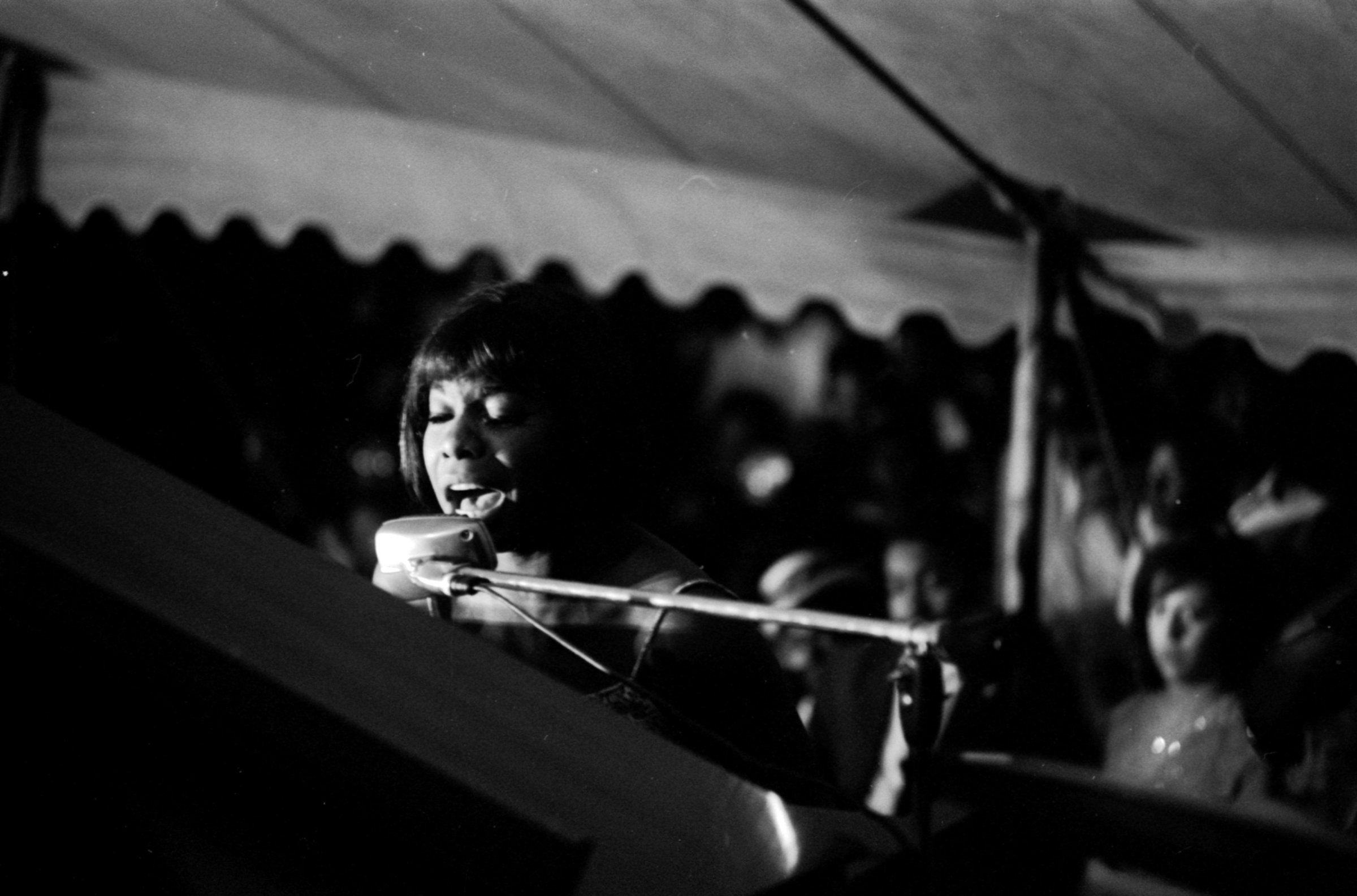
The Nina Simone biopic Nina, out April 22, has been plagued by controversy ever since it was first announced in 2012 that the actress Zoe Saldana had been cast to play its subject. The casting decision was described by some as evidence of colorism—hiring a lighter-skinned actress to play a woman who celebrated her beauty as a dark-skinned black woman—and Simone’s family said that its storyline was false. There has been so much acrimony surrounding the movie that the subject central to the film—Simone’s music—has been all but lost in the noise.
When LIFE magazine ran a review of one of her shows in the fall of 1970, written by critic Albert Goldman, Simone was emerging from a decade that had cemented her as a voice of the Civil Rights Movement. She had responded to tragedies like Medgar Evers’ and Martin Luther King, Jr.’s assassinations and the bombing of Birmingham’s 16th Street Baptist Church with songs like “Mississippi Goddam” and “Why (The King of Love Is Dead).” She performed regularly at civil-rights meetings and used her music as a venue for incisive social commentary.
From the moment she took the stage, Goldman said, the “High Priestess of Soul” was utterly captivating. Clad in “an exotic white gown, hair held high in an Afro topknot, a regal circlet of pearls girdling her forehead,” Simone began her set with “Black Is the Color of My True Love’s Hair,” her “soft, hazy voice cover[ing] the mind like the morning mist.” He compared her to Dinah Washington and Billie Holiday but noted that, where the popularity of jazz had faded with the rise of the Woodstock Generation, she had found a way in. “She has built her reputation so high as the toughest, funkiest, most hand-clappin’ ‘n’ finger-poppin’ of soul sisters,” he wrote, “that all she has to do is walk out on the stage of the Fillmore and the kids start taking the place apart.”
In retrospect, it’s perhaps not surprising that Goldman found Simone’s presence between songs less appealing than the music itself. It was around this time that her deep frustration with America’s racial politics had her thinking about leaving the country behind—which she soon would, eventually settling in France.
Though Goldman critiqued what he perceived as her hostility toward her audience, there was no question about why fans still showed up to listen: “Her hard, dark voice rises and falls,” he wrote, “with the imploring intonations of the blues.”
More Must-Reads from TIME
- Cybersecurity Experts Are Sounding the Alarm on DOGE
- Meet the 2025 Women of the Year
- The Harsh Truth About Disability Inclusion
- Why Do More Young Adults Have Cancer?
- Colman Domingo Leads With Radical Love
- How to Get Better at Doing Things Alone
- Michelle Zauner Stares Down the Darkness
Write to Eliza Berman at eliza.berman@time.com